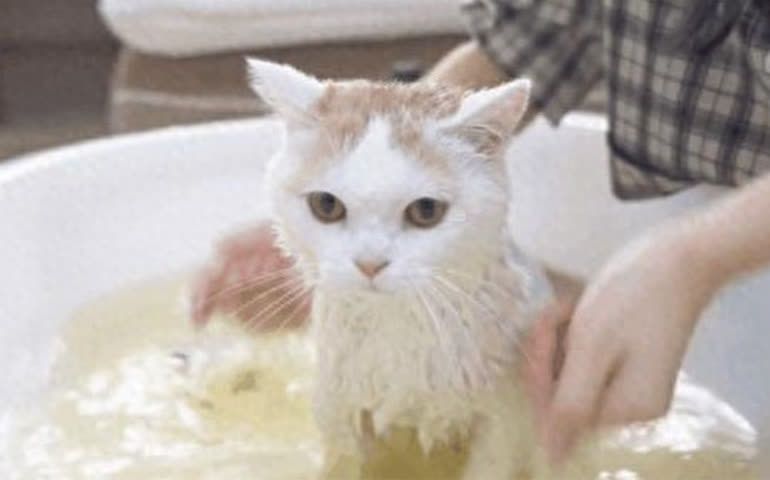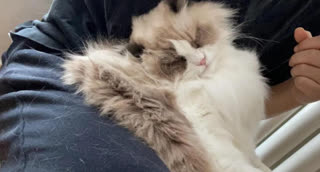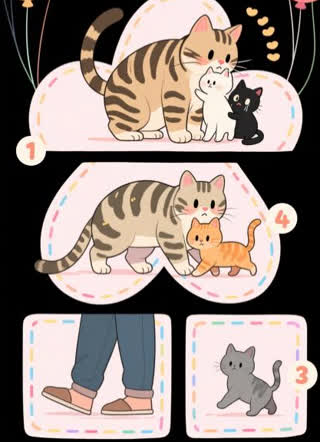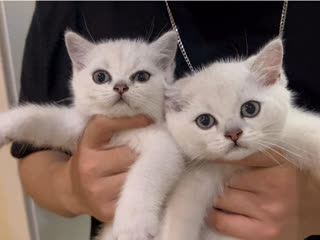As the winter chill sets in and we humans bundle up in our warmest layers, it's natural to start thinking about how the cold weather affects our feline friends. One common question that arises during this season is whether cats need to be bathed in the winter. After all, the cold temperatures and dry air can make the idea of a wet cat seem less than ideal. In this article, we'll explore the factors to consider when deciding whether to give your cat a bath during the winter months, as well as some tips for making the process as safe and stress-free as possible.
Understanding Your Cat's Natural Grooming Habits
Before we delve into the specifics of winter cat bathing, it's important to understand how cats typically keep themselves clean. Cats are known for their fastidious grooming habits, spending a significant amount of time each day licking their fur. This self-grooming serves several important purposes. First, it helps to remove dirt, debris, and loose hair from their coats, keeping them clean and free of tangles. Second, it distributes natural oils throughout their fur, which helps to keep their skin healthy and hydrated. Finally, grooming is a form of self-soothing for cats, helping to reduce stress and anxiety.
In most cases, cats are able to keep themselves clean enough through self-grooming alone. However, there are some situations where additional bathing may be necessary. For example, if your cat has a medical condition that affects their ability to groom themselves, such as arthritis or obesity, they may need more frequent baths to keep their coat clean and healthy. Additionally, if your cat spends a lot of time outdoors or has a tendency to get into messy situations, they may also require more frequent bathing.
Factors to Consider When Deciding Whether to Bathe Your Cat in the Winter
When it comes to winter cat bathing, there are several factors to consider. The first and most obvious factor is the cold weather. Cats are sensitive to cold, and a bath in cold water can be uncomfortable and potentially dangerous for them. If you do decide to bathe your cat in the winter, it's important to make sure the water is warm enough (around 100-102°F or 38-39°C) and that the room is warm and draft-free. You may also want to consider using a heated towel or a blow dryer on the lowest setting to help dry your cat's fur quickly and prevent them from getting chilled.
Another factor to consider is the dry air that often accompanies winter weather. Dry air can cause your cat's skin to become dry and itchy, which can be uncomfortable for them. Bathing your cat too frequently in the winter can further strip their skin of its natural oils, exacerbating the problem. If your cat's skin is already dry or itchy, you may want to consider using a moisturizing shampoo or conditioner specifically designed for cats, or consulting with your veterinarian about other options for treating dry skin.
In addition to the cold and dry air, you also need to consider your cat's individual personality and preferences. Some cats simply don't like being bathed, regardless of the season. If your cat is one of these cats, forcing them to take a bath in the winter may only cause them additional stress and anxiety. In these cases, it may be best to try alternative methods of keeping your cat clean, such as using a damp cloth or a cat wipe to gently clean their fur.
Signs That Your Cat May Need a Bath in the Winter
Despite the potential challenges of winter cat bathing, there are some signs that your cat may need a bath during this season. These signs include:
Dirty fur: If your cat's fur is visibly dirty, matted, or greasy, it may be time for a bath. This is especially true if your cat has been rolling around in dirt, mud, or other substances.
Strong odor: If your cat has a strong, unpleasant odor, it may be a sign that they need a bath. This could be due to a variety of factors, such as a dirty coat, a skin infection, or a problem with their ears or teeth.
Excessive scratching or licking: If your cat is scratching or licking themselves more than usual, it may be a sign that they are uncomfortable or itchy. This could be due to dry skin, a skin allergy, or a flea infestation. A bath may help to soothe their skin and reduce their discomfort.
Medical conditions: As mentioned earlier, if your cat has a medical condition that affects their ability to groom themselves, they may need more frequent baths to keep their coat clean and healthy. Your veterinarian can provide you with specific instructions on how often to bathe your cat based on their individual needs.
Tips for Bathing Your Cat in the Winter
If you've decided that your cat needs a bath in the winter, there are several things you can do to make the process as safe and stress-free as possible. Here are some tips to keep in mind:
Prepare the area: Before you start the bath, make sure the room is warm and draft-free. You may want to use a space heater or a heated towel to help keep your cat warm. Gather all the necessary supplies, including a cat-safe shampoo, a towel, a comb or brush, and a cup or sprayer for rinsing.
Be gentle: Cats can be sensitive, so it's important to be gentle when bathing them. Use a soft cloth or sponge to gently wet their fur and apply the shampoo. Avoid getting shampoo in their eyes, ears, or mouth. Use a cup or sprayer to rinse their fur thoroughly, making sure to remove all the shampoo.
Dry your cat thoroughly: After the bath, wrap your cat in a warm towel and gently pat them dry. You may want to use a second towel to help absorb any remaining moisture. If your cat tolerates it, you can use a blow dryer on the lowest setting to help dry their fur more quickly. Make sure to keep the blow dryer moving and not too close to your cat's skin to avoid burning them.
Alternatives to Bathing Your Cat in the Winter
If you're not comfortable bathing your cat in the winter, or if your cat simply doesn't like being bathed, there are some alternative methods you can try to keep your cat clean. These include:
Brushing: Regular brushing can help to remove dirt, debris, and loose hair from your cat's coat, keeping it clean and healthy. It can also help to distribute natural oils throughout their fur, which can help to keep their skin hydrated.
So, to answer the question, "Do cats need to be bathed in the winter?" the answer is it depends. While most cats are able to keep themselves clean enough through self-grooming alone, there are some situations where additional bathing may be necessary. When deciding whether to bathe your cat in the winter, it's important to consider factors such as the cold weather, the dry air, your cat's individual personality and preferences, and any medical conditions they may have. If you do decide to bathe your cat in the winter, make sure to take the necessary precautions to keep them safe and comfortable, and consider using alternative methods of keeping them clean if bathing is not an option. By taking good care of your cat's grooming needs, you can help to keep them healthy, happy, and looking their best all winter long.










